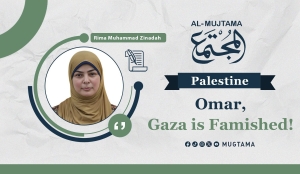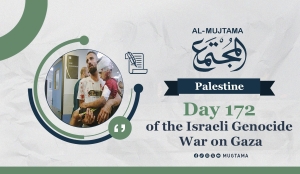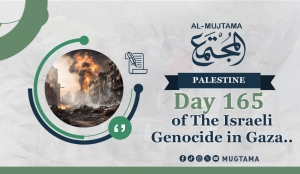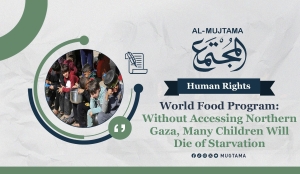7 Essential Steps to Prevent Divorce
October 24, 2024Marital life often goes through challenges, problems, and conflicts that can escalate to separation, divorce, and family disintegration if both parties insist on their stances and conflicts intensify without adhering to Islamic principles governing such matters.
Unfortunately, Arab countries are witnessing alarmingly high divorce rates, posing a significant challenge to Arab and Muslim families and threatening new generations with negative and catastrophic consequences that may be difficult to remedy later.
According to the divorce rate per thousand people, Libya leads with a rate of 2.5%, followed by Egypt at 2.3%, Saudi Arabia at 2.1%, Algeria at 1.6%, and Jordan also at 1.6%. From the sixth to the tenth positions are Lebanon at 1.6%, Syria at 1.3%, Kuwait at 1.3%, the UAE at 0.7%, and Qatar also at 0.7%, according to “Data Pandas,” a website specializing in global divorce rates.
However, other official data revealed that Kuwait leads the Arab world with a divorce rate of 48% of the total number of marriages, according to the Kuwaiti Ministry of Justice. Egypt ranks second in terms of divorce rate to total marriages at 40%, but it leads the Arab world in the number of divorce cases with 240 cases daily and 3 million divorced women, according to official data from the Egyptian Cabinet Information and Decision Support Center.
In Jordan, which ranks third, the divorce rate has risen to 37.2%, Qatar follows at 37%, the UAE and Lebanon are in fifth and sixth positions at 34%, Sudan at 30%, Iraq at 22.7%, and Saudi Arabia at 21.5%, according to “Al Jazeera Net.”
In light of this, there is an urgent need for practical and preventive measures to curb the growing divorce rates in the Arab world and to reduce its levels promptly, with the concerted efforts of all legislative, educational, social, religious, cultural, and media institutions to halt this dangerous cancer that strikes at the heart of family cohesion.
Preventive Measures to Reduce Divorce:
- Good Spousal Selection from the Start: The selection criterion should be religion and good character, not just wealth and status, as is commonly practiced. This criterion applies to both men and women. For women, the Prophet Muhammad (peace be upon him) said: “If there comes to you one with whose character and religious commitment you are pleased, then marry (your daughter or female relative under your care) to him, for if you do not do that there will be Fitnah in the land and widespread corruption.” For men, he said: “A woman may be married for four reasons, for her property, her rank, her beauty and her religion; so get the one who is religious and prosper.” (Al-Bukhari and Muslim)
- Living in Kindness and Mercy: There should be mutual kindness, compassion, and love between spouses. Allah says, “And of His signs is that He created for you from yourselves mates that you may find tranquillity in them; and He placed between you affection and mercy. Indeed in that are signs for a people who give thought.” (Ar-Rum: 21) The Prophet also warned against responding to life's annoyances with hostility, saying, “A believer must not hate a believing woman; if he dislikes one of her characteristics he will be pleased with another.” (Muslim) Sheikh Ibn Uthaymeen said: “'Fark' means hatred and enmity; that is, a believer should not harbor enmity or hatred towards a believing woman, such as his wife. He should not harbor enmity or hatred if he sees something he dislikes in her character because a person must act justly. He should consider the treatment that the situation demands. Justice is to balance the bad qualities with the good ones, assess which one is greater and which has a more significant impact, and let the more prevalent and impactful one prevail. This is true justice.”
- Advising with Wisdom and Good Counsel: Advice should be repeated wisely and beautifully, clarifying the truth and explaining its sources while being patient. Time is part of the treatment, as a person might not accept advice the first time due to stubbornness or other reasons but may soften later.
- Avoiding Estrangement: For a rebellious woman who refuses to obey her husband in righteousness, estrangement should occur in bed, not outside the home. Allah says, “Men are in charge of women by [right of] what Allah has given one over the other and what they spend [for maintenance] from their wealth. So righteous women are devoutly obedient, guarding in [the husband's] absence what Allah would have them guard. But those [wives] from whom you fear arrogance - [first] advise them; [then if they persist], forsake them in bed; and [finally], strike them. But if they obey you [once more], seek no means against them. Indeed, Allah is ever Exalted and Grand.” (An-Nisa: 34)
- Resorting to Reconciliation: Through a trusted third party of good and wise people, who can intervene to resolve the conflict, remind each party of the other's good qualities, distance them from Shaitan, and remind them of Allah. Allah says, “And if you fear dissension between the two, send an arbitrator from his people and an arbitrator from her people. If they both desire reconciliation, Allah will cause it between them. Indeed, Allah is ever Knowing and Acquainted [with all things].” (An-Nisa: 35)
- Islamic Wisdom in Limiting Divorce: Islam made divorce thrice and not once to provide an opportunity for review and reconciliation. A man can take his wife back if he divorces her once or twice as long as she is in her ‘iddah (waiting) period (three lunar months). He can divorce her while she remains in his house, perhaps reconciling and retracting. However, if he divorces her for the third time, she is no longer his wife and becomes unlawful for him until she marries another man willingly. If the latter divorces her willingly, she becomes lawful for her first husband again. Allah says, “Divorce is twice. Then, either keep [her] in an acceptable manner or release [her] with good treatment. And it is not lawful for you to take anything of what you have given them unless both fear that they will not be able to keep [within] the limits of Allah. But if you fear that they will not keep [within] the limits of Allah, then there is no blame upon either of them concerning that by which she ransoms herself. These are the limits of Allah, so do not transgress them. And whoever transgresses the limits of Allah - it is those who are the wrongdoers. And if he has divorced her [for the third time], then she is not lawful to him afterward until [after] she marries a husband other than him. And if the latter husband divorces her [or dies], there is no blame upon the woman and her former husband for returning to each other if they think that they can keep [within] the limits of Allah. These are the limits of Allah, which He makes clear to a people who know.” (Al-Baqarah: 229-230) Allah also says, “O Prophet, when you [Muslims] divorce women, divorce them for [the commencement of] their waiting period and keep count of the waiting period, and fear Allah, your Lord. Do not turn them out of their [husbands'] houses, nor should they [themselves] leave [during that period] unless they are committing a clear immorality. And those are the limits [set by] Allah. And whoever transgresses the limits of Allah has certainly wronged himself. You know not; perhaps Allah will bring about after that a [different] matter.” (At-Talaq: 1)
- Modern Recommendations: Seeking advice from social relationship experts and family counseling, taking a marital break for a few weeks to cool off, reviewing oneself, or attending training on how to accommodate the other and address the mistakes leading to divorce. Identifying cases deserving divorce while utilizing family, community, and religious awareness programs before making the decision to dismantle the family and endanger children.
-------------------------------------------------------------
Omar, Gaza is Famished!
March 27, 2024The hour was crawling to Fajr prayer when I woke up to the sound of a text on my phone from my dear blind friend, Al-Zahra. She told me, “My dear, I'm thinking of selling my phone and using the money to buy food because we have nothing to eat. Today we ate the last meal we had.”
At that moment, I couldn't catch my breath and felt puzzled. The circumstances are tough for everyone, and despite her proximity, the distances between Al-Zahra and me are far enough for movement, especially since everything in Gaza is now a target. Thus, every step must be carefully calculated.
Life in Gaza has become incredibly harsh, not only for Al-Zahra but for everyone there. We are besieged, occupied, bombarded, and facing famine, fear, and exhaustion.
Flour Smeared in Blood
In Gaza, people crave a loaf of bread, as it means a lot to them. They risk their lives for a small bag of flour.
They try to obtain it from a relief truck carrying bags of flour, but as they approach, the occupation forces start targeting them, resulting in a massacre each time, soaking the white flour bags with their red blood!
Despite knowing the danger beforehand, they are helpless. Each one only thinks of getting a bag of flour to feed their starving children for days, especially after its price has skyrocketed unnaturally, sometimes reaching over $400!
Life in Gaza has become extremely difficult, with the most basic necessities missing, and what is available comes at a high price. Many times, I would walk the streets amidst the sound of occupation rockets, searching for a vendor in hopes of finding some food supplies, vegetables, or anything edible.
With each step, I felt a sense of bewilderment, scanning left and right for something edible, and if I found something, I would pause silently when I knew its price, for the prices are unreasonably high.
Basic food items like rice, sugar, milk, flour, and many others are missing, and the same goes for vegetables and fruits. Even canned goods are no longer available, and if they are, they are very difficult to afford due to their extremely high prices.
I remember not seeing tomatoes, cucumbers, chicken, or eggs for months. The price of a single piece has become as expensive as gold, with prices that are incredibly unrealistic!
Unprecedented Famine
The geographic division of the besieged Gaza Strip has now changed, with areas now categorized as north and south. In the northern region, where I currently reside, there is a severe shortage of food supplies. Aid is scarce, and some of it has been targeted by the occupation's rockets.
This has led to a famine in the northern area of Gaza, unlike anything seen before. Its inhabitants are resorting to grinding animal and bird feed to make bread. However, even the animal feed has run out, prompting desperate searches for anything that can be ground in various attempts to obtain bread.
This makes the Ramadan tables in Gaza wretched, sometimes due to the loss of family and loved ones, other times due to the loss of homes, and yet others due to the lack of any kind of food!
I felt pained when I remembered the words of Caliph Omar ibn Abdulaziz when he instructed his workers to scatter wheat on the mountain peaks so that it would not be said that a bird went hungry in the lands of the Muslims.
I wonder what he would say knowing that children, women, men, and elders in Gaza have been starving for months in a catastrophic war!
-------------------------------------------------------------
Day 172 of the Israeli Genocide War on Gaza
March 27, 2024‘Operation Al-Aqsa Flood’ Day 172: Israel continues raids on Gaza hospitals following UNSC ceasefire resolution.
After the UN Security Council passed a resolution for an immediate ceasefire in Gaza, the U.S. decided not to vote. Despite this, Israeli Prime Minister Netanyahu has promised to keep fighting, and Israeli forces are currently attacking two major hospitals in Gaza.
Casualties
- Over 32,000 people have been killed and at least 74,000 wounded in the Gaza Strip.
- More than 400 Palestinians have been killed in the occupied West Bank and East Jerusalem.
- Israel has revised its estimated death toll down from 1,400 to 1,139.
- Almost 600 Israeli soldiers have been killed and over 3,000 injured since October 7.
Key Developments
- The UN Security Council passed a resolution for a “lasting” ceasefire without a U.S. veto. Netanyahu has stated that Israel will continue fighting until Israeli captives are released.
- UN Secretary General Antonio Guterres emphasized the importance of UNRWA as a lifeline for Palestinians in Gaza, despite the U.S. government funding bill banning UNRWA from receiving funds until 2025.
- UNRWA’s Commissioner-General reported that 171 UNRWA employees have been killed by Israeli forces since October 7.
- Nine Palestinians drowned while trying to retrieve aid packages dropped in the sea north of Gaza, and 27 have died from malnutrition due to food shortages.
- Israeli forces wounded two Palestinians in Nablus city and arrested 30 across the West Bank, bringing the total detained by Israel since October to 7,800.
- Over 100 Palestinians were killed in Gaza in just 24 hours.
UN Security Council Passes Ceasefire Resolution with U.S. Abstention
- The UN Security Council passed a resolution calling for an immediate ceasefire in the Gaza Strip, almost six months after Israel's assault on the Strip began.
- The resolution was adopted after the U.S. abstained, a significant shift from its previous positions.
- The resolution calls for the unconditional release of the remaining Israeli captives in the Gaza Strip as a precondition for the entry of humanitarian aid into Gaza.
- Hamas welcomed the resolution and is ready to conduct a captive swap with Israel immediately.
- Israel rejected the resolution, stating that the U.S. had "abandoned" its previous position that linked a ceasefire to a hostage release.
- The U.S. was "perplexed" by Israel's reaction and stated that the UN resolution "is not binding, so there is no impact at all on Israel’s ability to go after Hamas."
Eleven Massacres Across the Gaza Strip
- The Palestinian health ministry announced that 107 Palestinians were killed in 11 massacres committed by Israeli forces in the past 24 hours.
- Israeli bombings targeted the Abu Naqira family home, killing 21 Palestinians, including ten children.
- Israeli forces continued their incursions in the surroundings of al-Shifa Hospital, killing 30 Palestinians.
- Nine Palestinians were reported dead after drowning while trying to retrieve humanitarian aid from airdrops that fell into the sea in the northern Gaza Strip.
Israel Forces Raid Al-Amal Hospital
- The Palestinian Red Crescent Society announced that the al-Amal hospital in Khan Younis, southern Gaza, was completely forced out of service on Monday by Israeli forces.
- Israeli forces continue to besiege al-Shifa hospital for the ninth day in a row.
- Israeli forces arrested hundreds of Palestinians in the vicinity of al-Shifa, claiming they were members of Palestinian resistance groups.
Israeli Arrest Wave in the West Bank
- Israeli forces raided Qalqilya and Nablus in the northern occupied West Bank and Bethlehem and Hebron in the south, arresting 30 Palestinians.
- The number of Palestinians detained by Israeli forces has reached 7,800 prisoners since October 7.
Day 165 of The Israeli Genocide in Gaza
March 20, 2024Israeli-Induced Famine in Gaza
After a hundred sixty five days of warfare, the threat of famine in the Gaza Strip has intensified. UN High Commissioner for Human Rights Volker Türk asserts that Israel's regulations on useful resource and goods are the root cause of this coming near near disaster. The UN similarly states that famine-associated deaths in Gaza are a outcome of Israel's intense limitations on humanitarian help.
Humanitarian Crisis
The World Food Program stresses that in addition to food, Gaza wishes dietary supplements and remedy for kids affected by malnutrition. International figures, such as the Belgian Minister of Cooperation and Development, are urging Israel to ease its blockade.
Ongoing Violence in Gaza
Despite pleas for peace, Israeli forces keep to launch airstrikes and artillery bombardments on various districts in Gaza, along with Gaza City and the Nuseirat camp. These attacks have precipitated intense casualties, with at least 93 fatalities and 142 accidents said inside the ultimate day, together with the deaths of children.
Resistance Response
In reaction, armed wings affiliated with Hamas and the Islamic Jihad Movement have engaged in retaliatory movements towards Israeli forces, attacking army cars and employees. The Israeli navy confirmed that 8 soldiers were wounded in those engagements, raising the death toll amongst Israeli squaddies in Gaza considering the fact that October to 594.
Al-Shifa Hospital
Israeli forces have cordoned off the Al-Shifa sanatorium in Gaza, with reviews of Palestinians being killed and detained in the sanatorium Patients and doctors are brief of water and meals, growing a tense state of affairs. Hamas has condemned the attack at the clinic and called for global intervention.
Targeting the media
More than 60 journalists have been arrested in Gaza because the struggle commenced, and a few are being held without charge or trial. Some reporters have been released after being detained for 12 hours at al-Shifa Hospital as a result of the Israeli career. The Washington Post has raised questions on the killing of reporters through Israeli forces, bringing up aerial footage that doesn't assist Israel’s claims of targeting terrorists.
West Bank
The Palestinian Prisons Movement suggested that Israeli forces have arrested more than 7,670 people, which include 246 ladies and 500 children, inside the West Bank in view that October and maximum these days ultimate Monday, 15 Palestinians, such as journalists and a former prisoner which include imprisonment Violent clashes have additionally broken out between Palestinian militants and Israeli forces in Nablus and Hebron.
Houthi movements
The Houthis claimed obligation for concentrated on the Umm al-Rash Rash area (Eilat) in southern Palestine and the American deliver "Madow" inside the Red Sea in response to a U.S. Conflict. Troops destroyed dozens of missiles and drones in Houthi-managed areas of Yemen.
World Food Program: Without Accessing Northern Gaza, Many Children Will Die of Starvation
March 19, 2024The United Nations World Food Program warned on Monday that death from hunger will be the fate of heaps of kids if application crews were unable to enter northern Gaza.
The chief economist of the Food Program, Arif Hussein, said that children are dying of hunger within the Gaza Strip, in particular inside the north, including that the program is on the verge of maintaining famine in northern Gaza.
During a video conference interview with reporters on the United Nations approximately the Integrated Interim Classification for Food Security (IPC) record, Hussein stated, “For humanitarian remedy people, famine method declaring our collective failure. It method that we've got failed and those and children have died.” "Hunger."
Hussein pressured that, therefore, the essential measures should be taken before famine happens, stressing that kids are demise from starvation in the course of Gaza, “and if we aren't capable of input northern Gaza, no longer 20-30 youngsters will die, however heaps of them... We cannot permit that.”.
The Integrated Interim Classification for Food Security (IPC) file, prepared by means of United Nations establishments, confirmed that 70 percent of the population of the northern Gaza Strip faces catastrophic hunger.
Israel restricts humanitarian aid get entry to to Gaza, in which about three million Palestinians stay, inflicting a scarcity of meals, water, remedy and gas resources and growing a famine that has claimed the lives of children and the aged, in light of the presence of about two million displaced people in the Strip, which has been under siege for 17 years.
Since October 7, 2023, Israel has been waging a devastating war at the Gaza Strip, leaving tens of lots of civilian sufferers, most of them children and ladies, a humanitarian disaster and huge infrastructure destruction, which caused Tel Aviv performing earlier than the International Court of Justice on costs of genocide.
Source: Anadolu Agency






